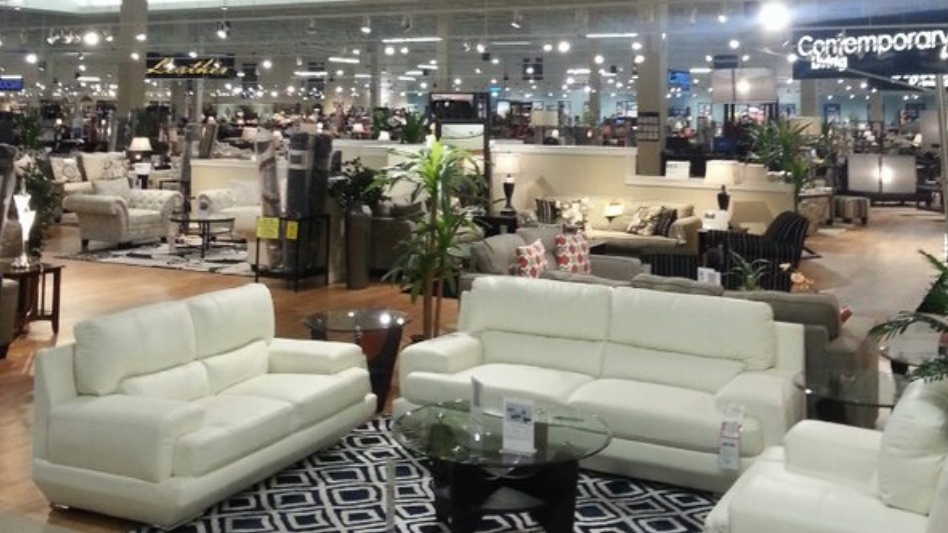
Economy
11:54, 23-May-2019
Colorado's furniture retailer urges U.S. to keep calm and trade on
Hendrik Sybrandy

American Furniture Warehouse (AFW) is one of Colorado's largest retailers. Its founder said he aims to provide value to his customers. He's also a big free trader.
"I think there should be no tariffs on anything," said Jake Jabs, AFW's 88-year-old CEO who has owned this business for exactly half of his lifetime.
"When I bought the old American Furniture company, I put every penny I had into it," Jabs proclaimed in one of his popular TV ads. "And I thought it'd be successful. But I never dreamed we'd go this far."
He never dreamed a trade dispute would go this far either.
"I think it's ridiculous," Jabs remarked at the recent World Trade Day in Denver, a global business conference where tariffs were all the talk.

Some of the furniture at AFW. /CGTN Photo
Some of the furniture at AFW. /CGTN Photo
"This latest round (of tariffs), these are levels that are unprecedented," said Lou Longo, Plante Moran's Global Services Partner. Longo does consultation work for various companies that are scrambling to deal with the current trade environment.
"I have China-based clients; I have U.S.-based clients, I have European and other clients that are all impacted and in various ways," he said.
Longo pointed out that Chinese exporters and U.S. importers of products largely shared the milder pain of past U.S. tariffs. The newly announced increase in duties from 10 to 25 percent on 200 billion U.S. dollars worth of Chinese imports could be a different story.
"That changes the game because at (a tariff of) 25 percent, they can't eat it, we can't eat it," Jabs said. "We're going to have to raise our prices, and that's what's sad. The consumer is the one that loses."
To keep costs down, companies like AWF have moved a large part of manufacturing to places like Vietnam. But five to six percent of their goods, often accessory items and those with more components, are still made in China. And that may be hard to change.

CGTN Photo
CGTN Photo
"The factories in China have the scale, they're huge, they can move the material, and they can deliver on time," said Tony Mitchell, American Furniture's Global Import Director. "That's a problem when you start moving things around to unknown areas."
"And there is a risk the factory might not be there if you want to come back and go back to China, your original source," he said.
It's not the first time Jabs has had to deal with this issue. Back in 2005, the U.S. charged China with dumping wooden bedroom furniture in this country at unfairly low prices and imposed steep import tariffs on the furniture as a result. Jabs fought unsuccessfully against those duties. The veteran of many price wars expects his furniture prices to go up in a few months if nothing changes. That goes against his grain.
"We're the biggest consumer of goods in the world, we should be the leader of free trade," Jabs said. "Hopefully, cooler heads will come to the table, and hopefully, the tariffs will go away."
His fingers are crossed.

SITEMAP
Copyright © 2018 CGTN. Beijing ICP prepared NO.16065310-3
Copyright © 2018 CGTN. Beijing ICP prepared NO.16065310-3